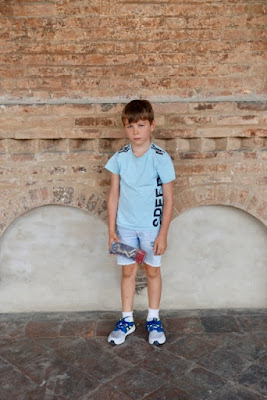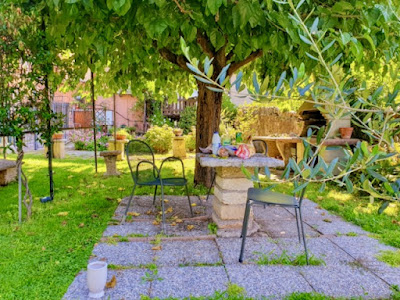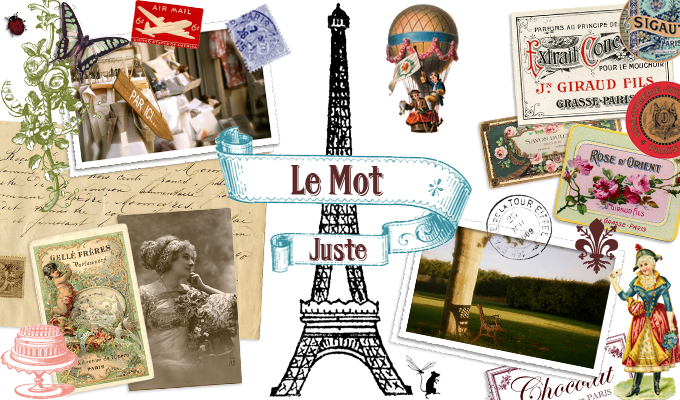It’s that time of the year again, when those of us fortunate enough to live in France get to go on vacation. Now, depending on your definition of “vacation,” this may or may not be a good thing, for there are some who insist that vacation with children is no vacation at all. And for the record, those people are correct. That has never stopped us, though—nor did it this year when it came time to choose where to go. “Croatia!” we decided. “By car!” we decided. Who’s crazy enough to travel from France to Croatia (≈1,000 miles) by car?
WE ARE.
.jpeg) |
| YAY! |
But first, we stopped in Italy—Padua, to be exact. Its Arena Chapel is home to some of Giotto’s most important frescoes, which I had been hankering to visit ever since my blithely innocent days as an art history undergrad back in whenever that was. In any case, the frescoes were awesome. The kids’ behavior, on the other hand, was grotesque. Do you think that stopped us? NOOOO. After over a decade of parenting, potential embarrassment is no longer a deterrent to engaging in full-blown public displays of dysfunction. Did I chase my son around a Renaissance-era marble fountain, threatening to grab the city map that he had turned into a giant paper airplane out of his hands and rip it into 1,000 shreds while fellow tourists looked on, silently thanking God that they had sent their children to stay with grandma and grandpa for the summer? Maybe.
 |
| Happy traveller. |
Padua on the whole was cool. And by cool I mean hot (mid-90s). But no matter! I stuffed my backpack with water, sunglasses, sun hats, sunscreen, and a USB-rechargeable mini fan, and off we went. We stayed at a really cute boutique hotel, which I heartily recommend to anyone planning to visit Padua anytime soon. Their breakfast in a flowery outdoor courtyard was lovely, plus I have noticed on multiple occasions over the years that Italians are truly tolerant of child antics, which is a BIG BONUS in my book. Actually, can I just say how much I love Italy, full stop? I love it. I love its food (obviously—everyone loves its food). But that’s not all. I love its art and architecture. I love its aesthetics. I love its Aperol spritzes. I love its reasonable prices. I love its language, even if my Italian vocabulary is pretty much limited to menu items and, thanks to a few weeks of Duolingo, observations concerning people’s age groups and genders (as un-woke as such observations may be these days). I love its HISTORY, especially its Roman and early Christian history. That’s my intellectual sweet spot. Oh, and its vegetation. Olive trees, vineyards, umbrella pines! Is there anything better? No—no there is not. I even love that you get to eat cookies for breakfast in Italy. Cookies! For breakfast! France remains my true love, but Italy is a close second. Had I participated in SMU-in-Rome instead of SMU-in-Paris back in 1999, who knows what could have happened?
.jpeg) |
| I mean come on. |
After several days of taking photos of bricks, stones, and umbrella pines, we piled back into the car and drove many, many hours through the Fréjus tunnel (50 euros, folks) and on into Slovenia. Do many Americans go to Slovenia? No. Do many Americans know where Slovenia is? No. And I would count myself among them, so no offense. We stopped for lunch in Piran. It was really nice! It had a big beautiful church on a big beautiful hill. Did we march the kids up there? You bet we did.
 |
| You’ll thank me one day, kids. |
Then, on to our first destination in Croatia—Rovinj. Gorgeous! We swam in the Adriatic; we visited more old churches; we climbed more stone stairs; we drank more spritzes; we continued to engage in the merciless cat-herding that is parenting while on vacation. I found a dress and belt ensemble that makes me look like I just stepped out of a Greek myth—THAT’S A WIN. Also, our digs were awesome. There was an amazing central garden space with turtles just wandering around amid the grass. Yes, turtles.
 |
| Gardens: the one thing we can all agree on. |
After a week or so, off we went to our second destination in Croatia—Trogir. Again, gorgeous! Swimming in turquoise waters (what’s a sea urchin or two?); visiting ancient Roman cities; drinking more spritzes. Also, dragging our children multiple times out of this insane rubber duck store, which for some reason I cannot fathom is not a local quirk at all but a full-on CHAIN. A chain! Devoted to rubber ducks in costume! And people say we aren’t in the End Times (I’m pretty sure the Book of Revelation includes something about rubber ducks).
 |
| Just, why? |
Our rental in Trogir was a little stone apartment tucked away amid ambling pathways, a pleasant 10-minute stroll from a pristine beach. Very cute. There was just one problem though…
I’d like to congratulate the local city planners for building an international airport three miles outside of town. I mean how hard did they think about this? Regular bombing runs notwithstanding, we had a wonderful stay. And an all-too-short week later, it was time to head home. Naively assuming we could simply drive back into Italy, we tried to do it in one shot. Little did we know that the rest of civilization had chosen that very same day to do that very same thing. Thus, what should have taken us 7 hours in fact took us 11, so by the time we reached our next stop—fair Verona—we were fried. And here I would like to add a slight caveat to my Italian ode above: roads. Roads in Italy need work. More specifically, they seem to have been designed for only the narrowest modes of transportation, e.g. horses. Thin horses. Why are there so many Vespas in Italy? This probably has something to do with it. Getting our car through a mini-tunnel and into its allotted parking space without sacrificing both side mirrors was not really a challenge we were thrilled to face upon pulling up to our rental at 10:00 p.m., but such is life. What’s a battle scar or two (or way more than two)?
 |
| Totally worth it. |
As for the city of Verona, ahhhhh—positively enchanting. Italy in all its glory (and by that I mean ancient ruins, umbrella pines, and spritzes, in that order). Plus, after over two weeks on the road, our kids were finally starting to behave. Alas, it was soon time to leave. But nary you fret, Italy.
Torneremo presto!
 |
| A Roman road! Even my feet are smiling. |



